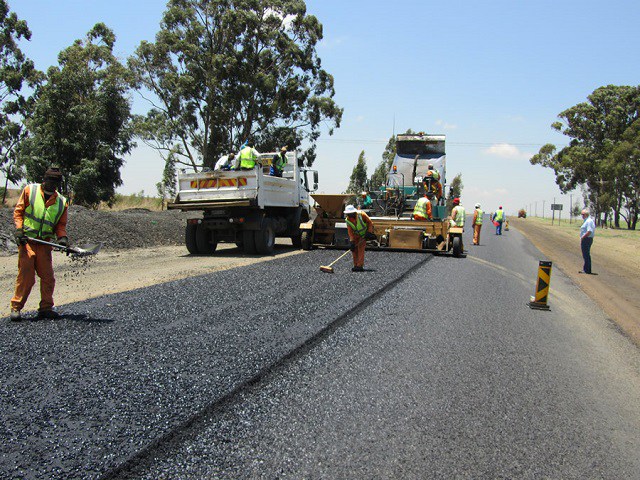Economic blueprint transforms university
THE Midlands State University (MSU) Industrial Park is living testimony of how Government’s economic blueprint, the Transitional Stabilisation Programme (TSP) has turned the institution of higher learning’s Innovation Hub into an economic game changer.
Gone are the days when universities were known for teaching students without emphasising the tangible products which can be used in employment creation as well as improving the economy.
MSU students and lecturers have taken the initiative to turn ideas into tangible products — a development that has resulted in the manufacturing of locally made road making tar —Bitumen— as the university walks the talk.
The manufacturing of the tar is expected to assist companies buy locally made and cheap road making material in a development that is going to assist the Zimbabwe National Road Administration (Zinara) and local authorities fix their road networks which are in a terrible state.
The industrial park was born out of the MSU’s Innovation Hub and employs more than 100 people in its textiles enterprise, chemicals production as well as the manufacture of face masks and hand sanitisers in the wake of Covid-19.
More ventures are in the pipeline.
The Industrial Park was commissioned by President Mnangagwa on November 20.
MSU is taking the lead in implementing the TSP announced in 2018 which is coming to end at the end of the year. The TSP has also been credited for achieving economic stability which has seen the availability of fuel, electricity and basic commodities in shops and also the strengthening of the local currency.
Last month President Mnangagwa launched a new economic blueprint, the National Development Strategy (NDS) 1, which is replacing the TSP.
The NDS1 will run from 2021 to 2025 and will be anchored on devolution and decentralisation as well as prudent use of public resources.
The MSU has a patent for its road surfacing material and is just waiting for certification.
The country has been importing the tar known as Bitumen from South Africa.
Bitumen is used to waterproof boats as well as to seal and bind materials used to construct buildings. It also has medicinal properties.
Members of the media fraternity and Government public relations officers attending a media training workshop on the TSP programme successes and NDS1 reporting in Gweru yesterday toured the MSU Industrial Park.
In an address after the tour, Mr Alex Mukwembi, director of MSU enterprises, said they were happy to be embracing Government programmes that stimulate economic growth.
“The Industrial Park came after we established the Innovation Hubs in line with education 5.0.
We are playing a major role in supporting Government programmes that stimulate economic growth. When we start producing tar on commercial scale, Government will save the much needed foreign currency.
At the moment we are importing Bitumen from South Africa and we saw that gap and decided to come up with a substitute to save forex,” he said.
Mr Mukwembi said they are using local raw materials that include coal tar and asbestos fibre to produce the tar.
“We have tested this and proved it is a substitute for the tar we are importing so the country is going to save on forex,” he said.
Mr Mukwembi said they have also started printing NDS 1 documents within their printing and publication department.
“We have started printing NDS 1 documents aimed at educating the nation on the new Government economic blueprint. We are producing sanitisers and have a capacity to produce 5 000 litres a day.
“We are also producing PPE and we have distributed some to schools in our province through Natpharm. We are also making 288 000 masks which are part of Natpharm order. We also want to provide chemicals for the mining industry as well as the agricultural sector,” he said.
Mr Mukwembi said gone are the days when the country used to import chemicals.
He said by July 2021, the Industrial Park will be producing pharmaceuticals using traditional herbs.
“In terms of employment opportunities for our people, the clothing and textiles has 30 workers plus 13 on attachment from CUT, Gweru, Gwanda, Mutare and Masvingo Polytechnic colleges.
The press has 21 workers and five people on attachment. We also have 10 workers making sanitizer and seven others on attachment. The tar is a research project by three lecturers from the department of chemical technology and one student,” said Mr Mukwembi.
Director of Media Services in the Ministry of Information, Publicity and Broadcasting Services Dr Anywhere Mutambudzi said the media should report on the successes of the TSP and unpack the NDS1 to galvanize the nation for a buy in into the programme towards Vision 2030.
“The Industrial Park falls under the clusters of human capital development, it speaks to industrialisation, the SMEs, construction and enterprises. From the TSP we are moving to NDS 1 and we have to report on the innovations and inventions by the brains at our universities. What we are seeing here is a great initiative which must be applauded,” said Dr Mutambudzi.
He commended MSU for printing Covid-19 materials, adding that they are looking forward to the institution printing NDS1 materials.
“We thank you for printing the Covid-19 material because we tried private companies and they charged us about $4million. We came to MSU and they gave us a competitive tender of less than $1,5million and we are grateful,” he said.
Media expert Chris Chinaka said the lesson from the MSU Industrial Park is that reporters have to get out of the news rooms for stories.
He said stories are there but they are not being told to the people.
Chinaka said a story is about images and words hence the need to leave the newsroom and work on what is being done.-chronicle.co.zw










